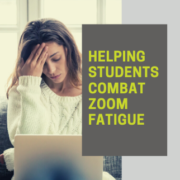Summer Slide

For those who are not immersed in the educational realm on a daily basis, the term “summer slide” may conjure up nostalgic memories of sunny afternoons at the pool. For academia, however, summer slide is a dreaded term—one that is not associated with a relaxing pool day at all. Instead, summer slide refers to the loss of academic skills and knowledge over the course of the summer months when students are not in school.
Statistically, summer slide poses a greater threat to students of lower socioeconomic standing, or those considered “at-risk” and most adversely affected by the achievement gap. While research suggests that summer slide is a larger factor for students who may not have access to educational experiences, materials, and books over the summer, the grim truth is that regardless of a family’s income, any student is susceptible to the loss of knowledge and skills while being out of school for the summer months. With some research indicating that summer slide could mean a loss of 20-30% of information gained over the previous school year, summer slide is valid concern for educators and parents to consider.
Fortunately, there are many ways to combat summer slide. For children and teens, summer reading packets, math booklets, and the like are most often met with groans. Summer is supposed to be a time of freedom from stress; it’s a time for adventure and exploration! So, if parents truly want to sell a child on schoolwork during the summer, they really must package it appropriately.
- Provide an ample amount of what teachers call “student choice.” Children are much more likely to invest their time and attention in a book or learning activity if it involves an aspect of interest. Additionally, a sense of agency and independence comes with children and teens having a say in what they would like to read or participate in.
- Parents of reluctant readers will want to provide multiple modes of texts as well. Consider purchasing the audiobook or ebook so that your child can listen while following along. If lengthy chapter books bring dread, expand literature options to graphic novels, magazines, or adapted versions of the classics. Again, the more a young reader has to choose from, the more likely he or she is to land on something pleasurable.
- Plan for activities that relate to or expand upon parts of the curriculum from that previous school year. Children are always surprised when topics or facts from the classroom suddenly apply in “real life.” Parents can check the school district’s website for curriculum materials or email the child’s teachers to review the major concepts, novels, or skill sets that students were to have mastered that year. Then, with that knowledge, parents can select materials or push children in the direction of texts and activities that incorporate those skills. For example, if parents know that their middle schooler read The Diary of Anne Frank over the winter term, they may want to select from sub-genres involving WWII, Holocaust survival stories, or other autobiographical works that feature a strong, young narrator.
- Getting the whole family involved in summer learning can help to motivate children and teens as well. Consider starting a weekly family book club, in which each member reads the assigned pages and then participates in an informal chat about their thoughts on the chapter or events so far. The key to keeping the momentum and enthusiasm going is to ensure that the book talk remains as informal as possible. Throw pillows and blankets around the living room, set out snacks or use the night as an excuse to have a pizza party while discussing the book. Since a movie night can be a great incentive for children, think about choosing a book that also has its own film adaptation.
- Connect the reading material to real life experiences. For instance, if a child is starting middle school next year, provide her with YA book options that feature a preteen navigating through middle school. If soccer camp is on the agenda for the summer, find reading materials—nonfiction, fiction, or biographical—that center around soccer, soccer players, or the history of the sport. The secret to keeping kids reading is to keep the material fresh and relevant.




